How You Can Help Improve Your Child’s Reading Skills
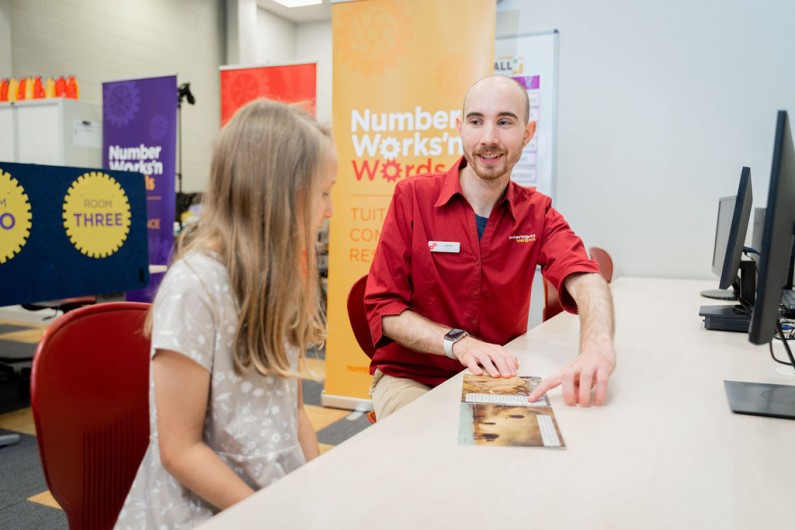
Reading can be difficult for several reasons, including the complexity of the text, unfamiliar vocabulary and lack of interest or motivation. However, reading is an essential skill that plays a crucial role in a child’s development and personal success.
The benefits of reading are significant and worth the effort to overcome these challenges. In this article, we cover the benefits of reading for children and how you as a parent can support your child to improve their reading skills.
Is your child struggling to keep up with schoolwork? Are they falling behind? Are they bored in class? Or are you looking for extension work for your child? Check out our eBook to learn more about how we help your child improve academically and build confidence through our in-centre after-school tuition.
Improves communication skills
Reading is critical to developing great communication skills, an essential part of daily life! Reading enables children to understand the context in which certain phrases or words are used, making it easier for them now and in the future to communicate with people from different backgrounds and ages. Additionally, reading helps children analyse information, make judgements, form opinions and comprehend others to answer appropriately, which are vital in effective communication.
Enhances cognitive abilities
Reading is a complex cognitive activity that requires attention, memory, and problem-solving. By engaging in reading, children can enhance their cognitive development.
For example, helping children keep track of characters, names, events and places in a book is an essential part of developing memory and cognitive function. It also helps their brains to develop new synapses (pathways) and strengthen existing ones.
Research has also shown that taking part in mentally challenging activities, such as reading from childhood through to old age, can help compensate for brain damage caused by Alzheimer’s, dementia and ageing.
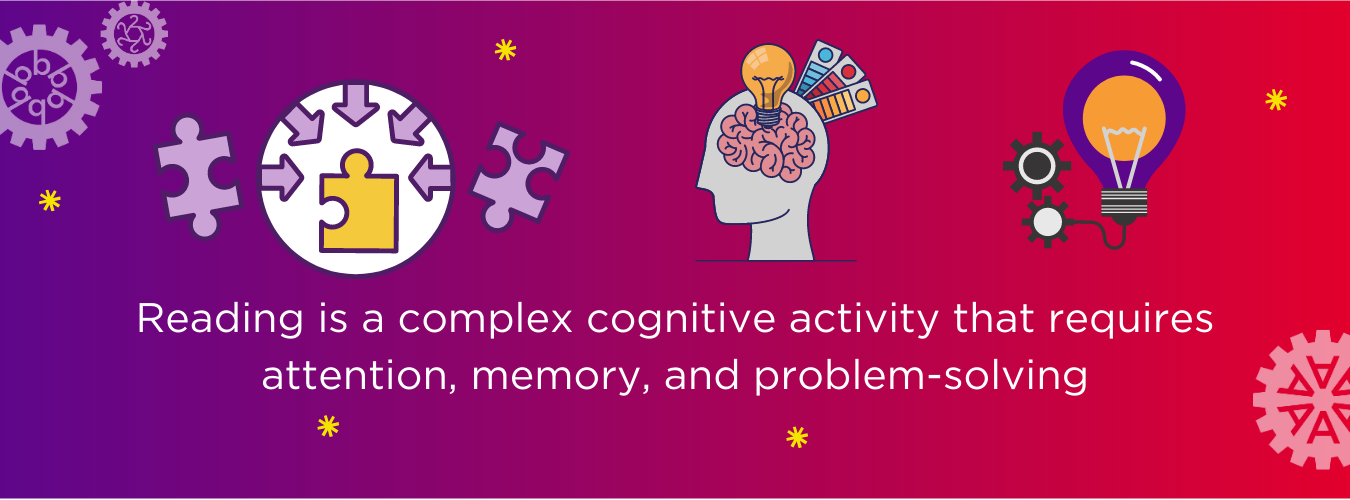
Boosts creativity and imagination
Reading stimulates the right side of our brain, responsible for imagination and encourages children to think creatively. Improving imagination in children works in a similar way to muscle memory in sports, where repeated actions can eventually become subconscious and autonomous for them. When reading, children visualise the characters, setting, and events in their minds, which can inspire them to create their own stories and ideas.
Develops empathy
Reading supports the development of empathy in children by allowing them to step into the shoes of the character in the story, helping them experience the character’s emotions, thoughts and perspectives, which develops empathy, care and understanding for others in the real world, as they find parallels between the two environments.
In an article from the Harvard Business Journal, they found that through reading, children can gain a deeper understanding of human experiences, which broadens their worldview and perspective on diversity, promoting empathy and understanding for others.
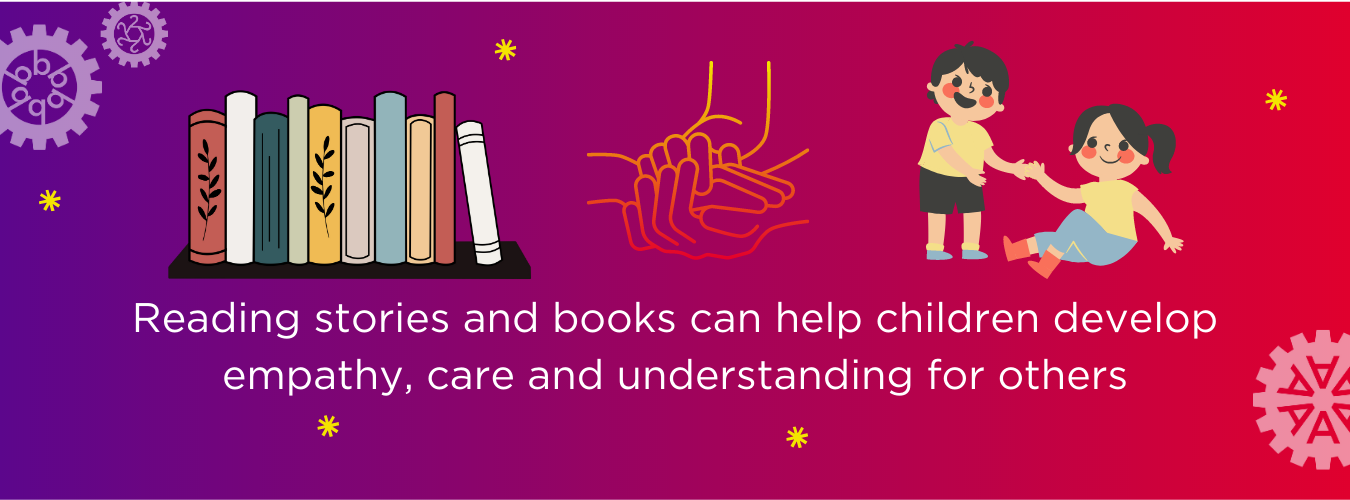
Improves academic performance
Reading is a fundamental skill that underlies academic success in all subjects. In academic settings, reading is a key component of learning because textbooks, research papers, and other educational materials are primarily presented in written form. The ability to read effectively and efficiently can help individuals understand complex concepts, follow instructions, and communicate effectively.
However, reading isn’t a habit or activity that most young New Zealanders enjoy. A recent study published in the New Zealand Herald found that 28% of 15-year-olds said “reading was a waste of time” and 52% said, “I only read if I have to”.
Encouraging young children to read can be challenging especially if they do not enjoy it. However consistent practice can yield significant benefits, making it an important part of academic success. It is important to be patient, and supportive and encourage children to develop their own love for reading at their own pace.
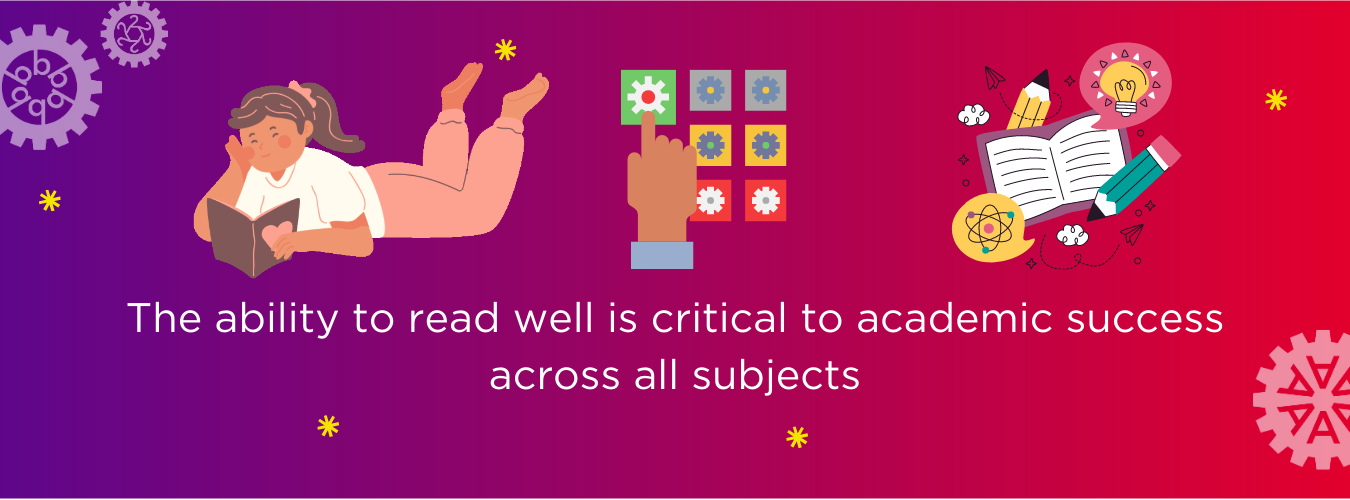
Relaxation
Reading can be a relaxing and calming activity that can help children reduce stress and anxiety. Research conducted by the University of Sussex found that reading a book for as little as six minutes a day is one of the most effective ways to lower your heart rate, relax your muscles and reduce stress. Reading before bed can also promote better sleep and improve overall well-being.
Unlike watching or listening to something, reading requires full concentration, allowing your mind to disconnect from outside distractions, especially important for children. Reading books can expand our knowledge and understanding of the world, as it leads us to new ideas and teaches us more about the things we already know.
How you can help improve your child’s reading skills
Reading is actually a complex skill that doesn’t come naturally to all children. The ‘Ladder of Reading’ shows that 15% of children find it difficult to learn to read, and 45% of all children find it challenging. A field of research has emerged on this topic to understand the difficulties children face when learning to read, and how we can better teach it (for more information see our blog on how the Science of Reading helps with literacy.)
Given the difficulties, children are experiencing learning to read, as a parent you might be wondering how you can help. The good news is that your support matters, here are a few of our tips you can use to help improve your child’s reading skills.
Reading aloud together
Reading to your child, even just for 10 minutes a day, is a great way to help them develop their reading skills. A study called the Reading Teacher, found that parents or teachers who read aloud to children in Year 2 for 10 minutes a day, 5 times per week, produced significantly higher reading achievement, with most children reading at least one year level (Year 3) above their reading level.
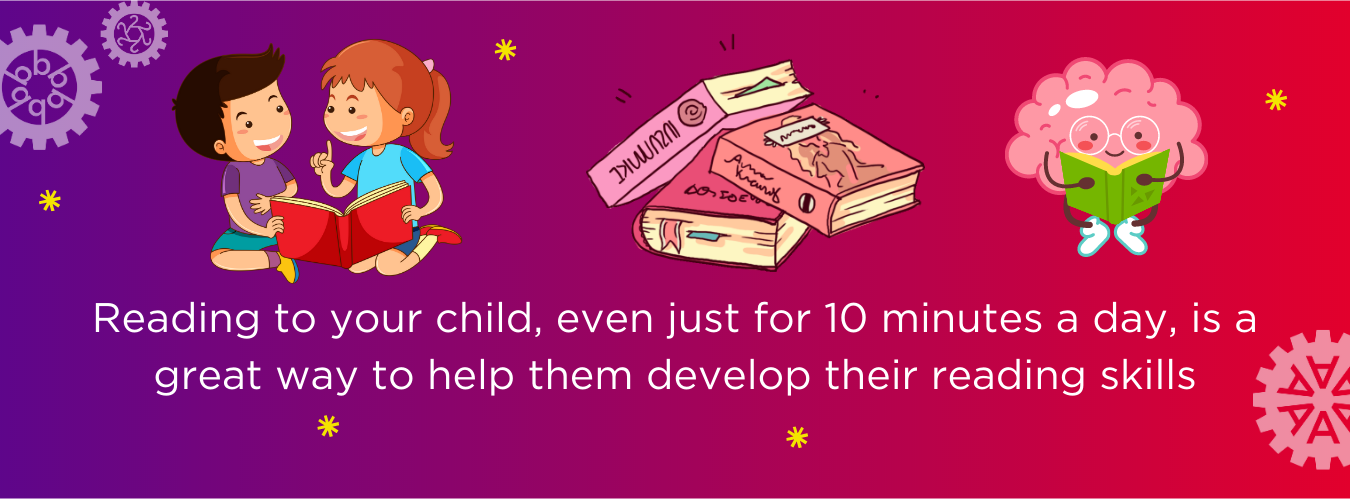
Another study followed a group of kindergarten children who did not regularly read aloud in primary school to compare their reading skills to those who were. The study found that in Year 4, 88% of kindergarteners who had little exposure to reading continued to have lower vocabulary and reading skills compared to their peers.
Not only does reading aloud to your child help them read at a higher level than their peers, but it also develops language skills including vocabulary, grammar, and syntax. Hearing words and sentences pronounced correctly helps children develop an understanding of how it is pronounced and why it sounds a certain way.
As your child grows older, encourage them to read aloud to you, or even read independently and discuss the books with you.
Talk about reading
Having conversations with your child about reading and what they’ve read is a great way to motivate them to read more. Each time your child finishes reading, you can ask them what book they’ve read, what they enjoyed and why. Asking questions about what happened in the book, such as why they think the characters behaved the way they did, can help them develop critical thinking and analytical skills.
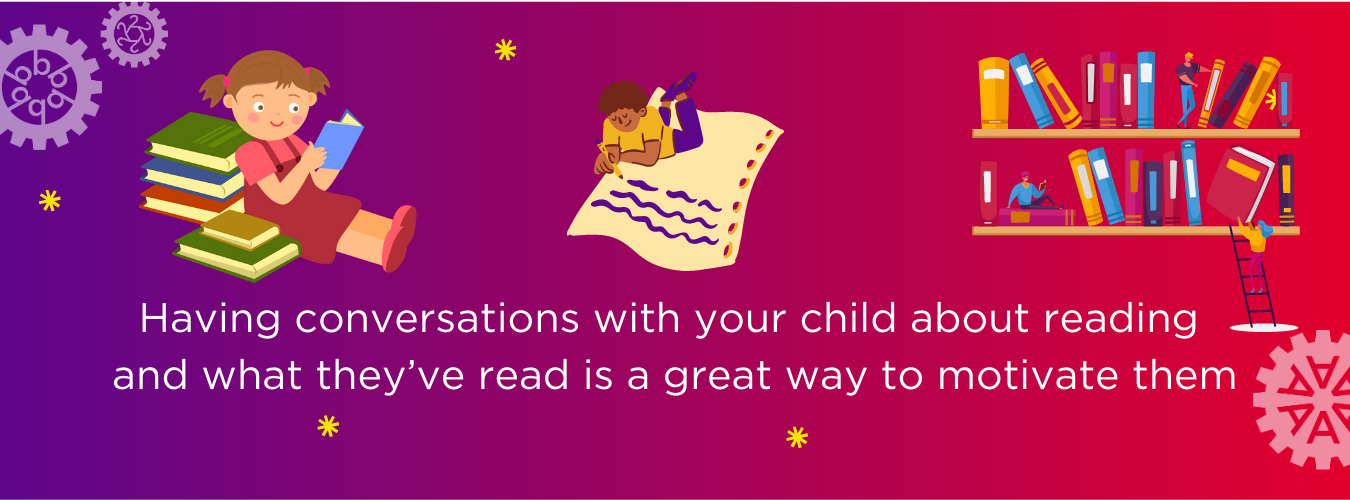
Build their vocabulary
Encouraging children to use new words from recent stories is a great way to expand their vocabulary, Here are some ideas you can use::
- When reading a story with your child, stop and discuss the meaning of any new words. Use examples or analogies to help them understand the meaning and context of the word.
- Encourage your child to use the new word in a sentence or create a story or scenario that includes that word.
- Create games or activities that involve using the new word. For example, you could play a game at the end of the week that involves matching the new words from the week with the correct definition.
- Model this new word in your own conversations with them or others in your family when they are present. This will demonstrate to your child the importance of using these new words and expanding their vocabulary.
Helping your child to use new words from the recent books will give them real-life context in other environments outside of home or school.
Make reading fun
Children are more likely to develop a love of reading if it’s fun and enjoyable. Try to find books that match your child’s interests and let them choose the books they want to read. You can also make reading interactive by asking questions about the story or characters, or by encouraging your child to act out the story.
Books for reluctant readers
At NumberWorks’nWords we regularly hear from parents who would like recommendations for engaging stories that can interest their children in reading. If your child is a reluctant reader, we have some great suggestions to inspire children’s imagination and make them want to pick up a book.
Encourage different genres
Exposing children to different genres encourages them to lead their own reading adventures. Over time, they might realise they favour a particular author and wish to explore more of their work, whether it be a different series, characters or locations. By exposing them to a wide range of books, you can help build their vocabulary, improve their comprehension, and foster a love of reading.
Register for a library membership
Library memberships are a popular way to expose children to a wide range of reading materials and styles. Not only are they free, but they also have a bunch of resources like reading lists and expert staff to help recommend books based on your child’s tastes and interests.
Supporting your child beyond homelife
Reading is a critical skill that offers numerous benefits for children. Encouraging children to read regularly is one of the best investments in their future. At NumberWorks’nWords, we offer a fantastic literacy programme that suits all types of learners, from reluctant readers or writers to aspiring English masters who love English and need an extension.
Our English learning programme covers essential skills such as reading, comprehension, language skills, and writing, for children aged 5-16. If you would like to learn more about our after-school tuition, get in touch with your local centre, and book a free assessment!




